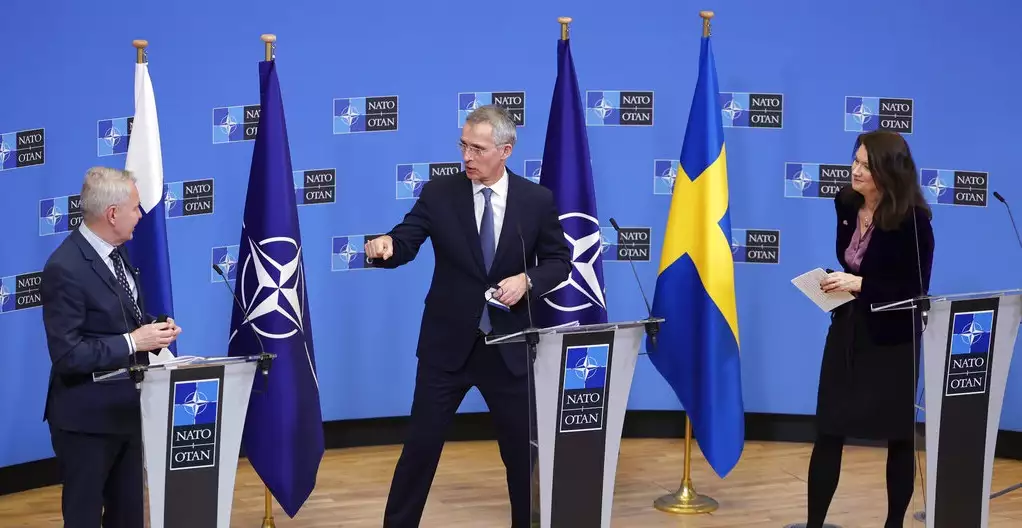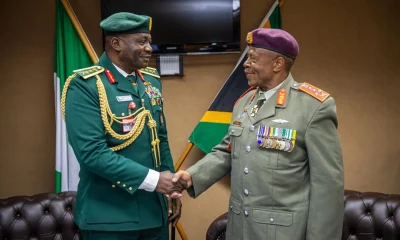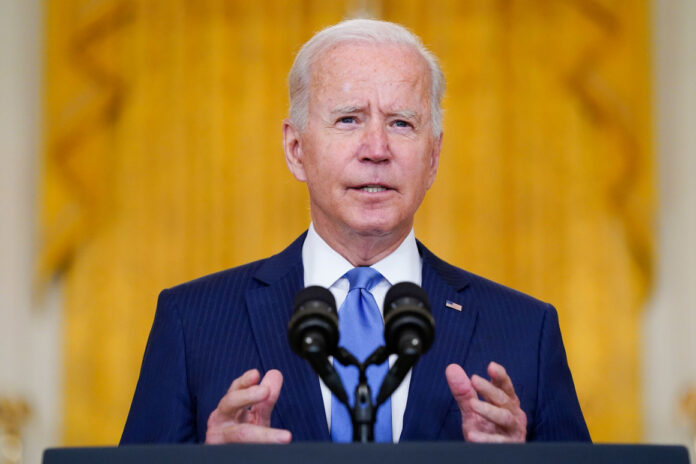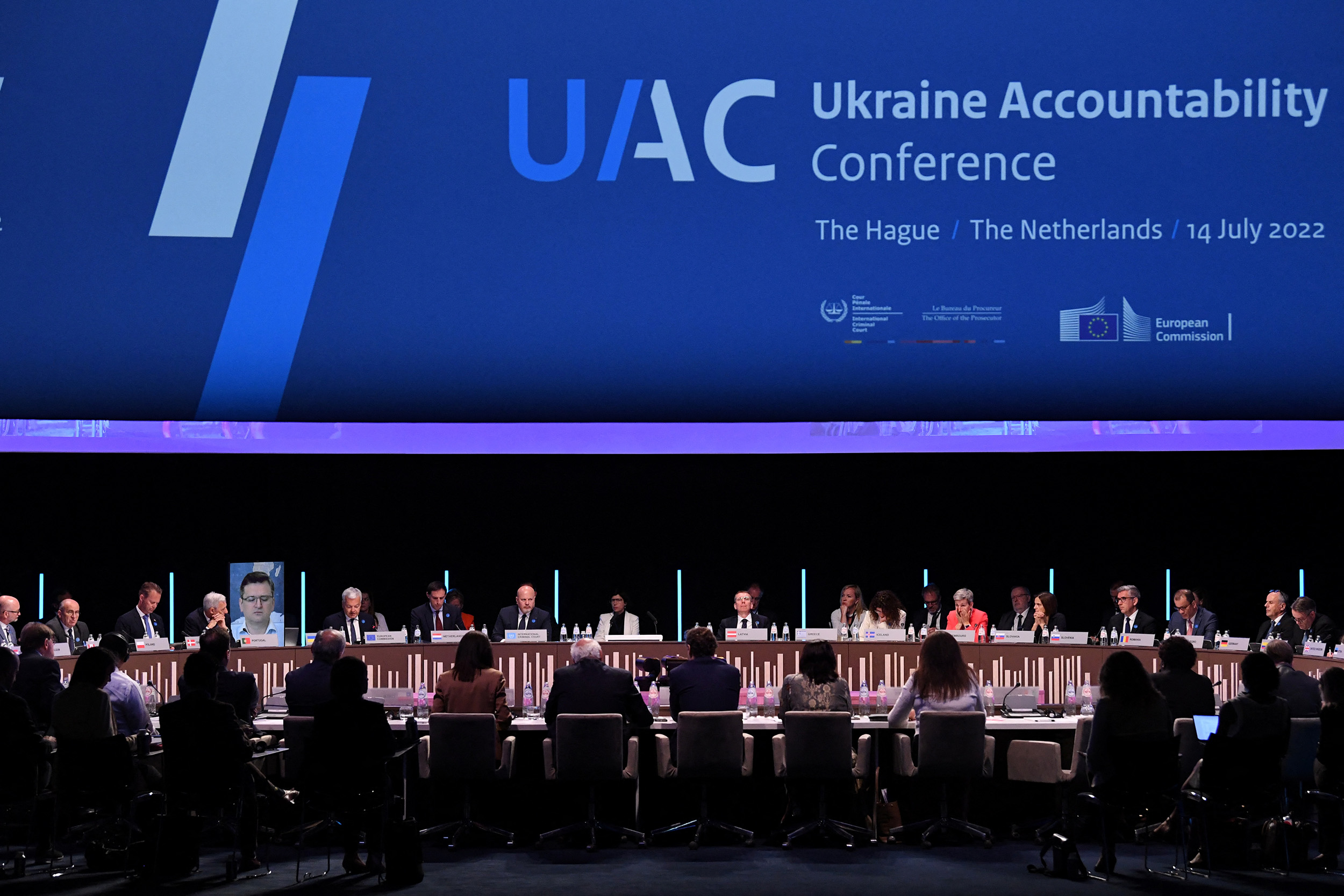Headlines
Finland, Sweden Apply to Join NATO as Russia Pummels Ukraine

By Derrick Bangura
Finland and Sweden formally applied to join NATO on Wednesday, prompted by Russia’s invasion of Ukraine and triggering one of the most significant changes in Europe’s security architecture in decades.
The applications came after more than 250 Ukrainian fighters surrendered to Russian forces at the Azovstal steelworks in Mariupol after weeks of resistance, bringing an end to the most devastating siege of Russia’s war in Ukraine.
Finland and Sweden were both neutral throughout the Cold War and their decision to join NATO reflects the sweeping shift in public opinion in the Nordic region since Russia’s Feb. 24 invasion.
It also brings about an expansion of the Western alliance that Russian President Vladimir Putin had long invoked as one of the main justifications for ordering his “special military operation” in Ukraine in February.
“This is a historic moment, which we must seize,” NATO Secretary-General Jens Stoltenberg said at a ceremony in which the Swedish and Finnish ambassadors to the alliance handed over their application letters.
Ratification of all 30 allied parliaments could take up to a year, diplomats say.
Turkey has surprised its allies in recent days by saying it had reservations about the new prospective members, but Stoltenberg said he thought the issues could be overcome.
Ankara has said it wants the Nordic countries to halt support for Kurdish militant groups present on their territory and lift bans on some sales of arms to Turkey.
U.S. President Joe Biden will host the leaders of Sweden and Finland at the White House on Thursday to discuss the applications, the White House said.
After weeks in which Russia threatened retaliation against the NATO plans, Putin appeared to abruptly climb down, saying in a speech on Monday that Russia had “no problems” with either Finland or Sweden, and that their NATO membership would not be an issue unless the alliance sent more troops or weapons there.
The steelworks surrender in Mariupol allowed Putin to claim a rare victory in a campaign which many military analysts say has stalled.
While both sides spoke of a deal under which all Ukrainian troops would abandon the steelworks, many details were not yet public, including how many fighters still remained inside, and whether any form of prisoner swap had been agreed.
POSSIBLE PRISONER EXCHANGE
Buses left the steelworks late on Monday in a convoy escorted by Russian armoured vehicles. Five arrived in the Russian-held town of Novoazovsk, where Moscow said wounded fighters would be treated.
Seven buses carrying Ukrainian fighters from the Azovstal garrison arrived at a newly reopened prison in the Russian-controlled town of Olenivka near Donetsk, a Reuters witness said.
Russia said at least 256 Ukrainian fighters had “laid down their arms and surrendered”, including 51 severely wounded. Ukraine said 264 soldiers, including 53 wounded, had left.
Russian defence ministry video showed fighters leaving the plant, some carried on stretchers, others with hands up to be searched by Russian troops.
There were some women aboard at least one of the buses in Olenivka, Reuters video showed.
The Kremlin said Putin had personally guaranteed the prisoners would be treated according to international standards, and Ukrainian officials said they could be exchanged for Russian captives.
Ukrainian Deputy Prime Minister Iryna Vereshchuk said Kyiv aimed to arrange a prisoner swap for the wounded once their condition stabilised.
Russian Deputy Ambassador to the United Nations Dmitry Polyansky said there had been no deal, tweeting: “I didn’t know English has so many ways to express a single message: the #Azovnazis have unconditionally surrendered.”
TASS news agency reported a Russian committee planned to question the soldiers, many of them members of the Azov Battalion, as part of an investigation into what Moscow calls “Ukrainian regime crimes”.
Fighters of the Azov Regiment are lionised as heroes in Ukraine, but reviled by the Kremlin as a band of Russia-hating neo-Nazis.
High-profile Russian lawmakers spoke out against any prisoner swap. Leonid Slutsky, one of Russia’s negotiators in talks with Ukraine, called the evacuated combatants “animals in human form” and said they should be executed.
Formed in 2014 as an extreme right-wing volunteer militia to fight Russian-backed separatists, the Azov Regiment denies being fascist or neo-Nazi. Ukraine says it has been reformed and integrated into the National Guard.
BATTLE FOR DONBAS
The battle for Mariupol is Russia’s biggest victory since its invasion, giving it control of the Azov Sea coast and an unbroken stretch of eastern and southern Ukraine. But the port lies in ruins, and Ukraine believes tens of thousands of people were killed under months of Russian bombardment.
Russia’s offensive in the east, meanwhile, appeared to be making little progress, although the Kremlin says all its objectives will be reached in its bid to “demilitarise” Ukraine.
Ukraine’s military command said Russia continued to shell Ukrainian positions along the entire frontline in the east on Wednesday.
“In the Kharkiv direction, the enemy focused on maintaining its positions and preventing the further advance of our troops,” Ukraine’s general staff said in a statement.
Around a third of the Donbas was held by Russia-backed separatists before the invasion. Moscow now controls around 90% of Luhansk region, but it has failed to make major inroads towards the key cities of Sloviansk and Kramatorsk in Donetsk in order to extend control over the entire Donbas.
Ukrainian forces have advanced at their fastest pace for more than a month, driving Russian forces out of the area around Kharkiv, Ukraine’s second-largest city.
Ukraine says its forces had reached the Russian border, 40 km (25 miles) north of Kharkiv. They have also pushed at least as far as the Siverskiy Donets river 40 km to the east, where they could threaten Russian supply lines.
Headlines
Noble Ladies Champion Women’s Financial Independence at Grand Inauguration in Abuja

Women from diverse backgrounds across Nigeria and beyond gathered at the Art and Culture Auditorium, Abuja, for the inauguration and convention of the Noble Ladies Association. The event, led by the association’s Founder and “visionary and polished Queen Mother,” Mrs. Margaret Chigozie Mkpuma, was a colourful display of feminine elegance, empowerment, and ambition.
The highly anticipated gathering, attended by over 700 members and counting, reflected the association’s mission to help women realise their potential while shifting mindsets away from dependency and over-glamorization of the ‘white collar job.’ According to the group, progress can be better achieved through innovation and creativity. “When a woman is able to earn and blossom on her own she has no reason to look at herself as a second fiddle,” the association stated.
One of the association’s standout initiatives is its women-only investment platform, which currently offers a minimum entry of ₦100,000 with a return of ₦130,000 over 30 days—an interest rate of 30 percent. Some members invest as much as ₦1 million, enjoying the same return rate. Mrs. Mkpuma explained that the scheme focuses on women because “women bear the greater brunt of poverty” and the platform seeks “to offer equity in the absence of economic equality.”
Education is also central to the Noble Ladies’ mission, regardless of age. Their mantra, “start again from where you stopped,” encourages women to return to school or upgrade their skills at any stage in life. The association believes that financial stability is vital in protecting women from cultural practices that dispossess widows of their late husbands’ assets, while also enabling them to raise morally and socially grounded families.
Founded on the vision of enhancing women’s skills and achieving financial stability, the association rests on a value system that discourages pity and promotes purpose. “You have a purpose and you build on that purpose to achieve great potentials and emancipation,” Mrs. Mkpuma said.
A criminologist by training and entrepreneur by practice, she cautions against idleness while waiting for formal employment. “There are billions in the informal and non-formal sectors waiting to be made,” she said, rejecting the “new normal of begging” and urging people to “be more introspective to find their purpose in life and hold on to it.”
Mrs. Mkpuma’s management style keeps members actively engaged, focusing on vocational skills and training to prepare them for competitive markets. She is exploring “innovative integration of uncommon technologies” and is already in talks with international franchises to invest in Nigeria, with Noble Ladies as first beneficiaries.
The association’s core values include mutual respect, innovation, forward-thinking, equal opportunity, and financial emancipation. With plans underway to establish a secretariat in the heart of Abuja, the group aims to expand its impact.
The event drew high-profile guests, including former Inspector General of Police, Mike Okiro, and a host of VIPs, marking a significant milestone in the association’s drive for women’s empowerment.
Headlines
NEPZA, FCT agree to create world-class FTZ environment

The Nigeria Export Processing Zones Authority (NEPZA) has stepped in to resolve the dispute between the Federal Capital Territory Administration and the Abuja Technology Village (ATV), a licensed Free Trade Zone, over the potential revocation of the zone’s land title.
Dr. Olufemi Ogunyemi, the Managing Director of NEPZA, urged ATV operators and investors to withdraw the lawsuit filed against the FCT administration immediately to facilitate a roundtable negotiation.
Dr. Ogunyemi delivered the charge during a courtesy visit to the Minister of the Federal Capital Territory, Barrister Nyesom Wike, on Thursday in Abuja.
You will recall that the ATV operators responded to the revocation notice issued by the FCT administration with a lawsuit.
Dr. Ogunyemi stated that the continued support for the growth of the Free Trade Zones Scheme would benefit the nation’s economy and the FCT’s development, emphasizing that the FCT administration recognized the scheme’s potential to accelerate industrialisation.
Dr. Ogunyemi, also the Chief Executive Officer of NEPZA, expressed his delight at the steps taken by the FCT minister to expand the economic frontier of the FCT through the proposed Abuja City Walk (ACW) project.
Dr. Ogunyemi further explained that the Authority was preparing to assess all the 63 licensed Free Trade Zones across the country with the view to vetting their functionality and contributions to the nation’s Foreign Direct Investment and export drives.
“I have come to discuss with His Excellency, the Minister of the Federal Capital Territory on the importance of supporting the ATV to succeed while also promoting the development of the Abuja City Walk project. We must work together to achieve this for the good of our nation,” he said.
On his part, the FCT Minister reiterated his unflinching determination to work towards President Bola Ahmed Tinubu’s Renewed Hope Agenda by bringing FDI to the FCT.
“We must fulfil Mr. President’s promises regarding industrialization, trade, and investment. In this context, the FCT will collaborate with NEPZA to review the future of ATV, a zone that was sponsored and supported by the FCT administration,” Wike said.
Barrister Wike also said that efforts were underway to fast-track the industrialisation process of the territory with the construction of the Abuja City Walk.
The minister further said the Abuja City Walk project was planned to cover over 200 hectares in the Abuja Technology Village corridor along Airport Road.
According to him, the business ecosystem aimed to create a lively, mixed-use urban center with residential, commercial, retail, hospitality, medical, and institutional facilities.
He added that the ACW would turn out to be a high-definition and world-class project that would give this administration’s Renewed Hope Agenda true meaning in the North-Central Region of the country.
Barrister Wike also indicated his continued pursuit of land and property owners who failed to fulfil their obligations to the FCT in his determination to develop the territory.
Headlines
Benue IDPs block highway, demand return to ancestral homes

Vehicular movement along the Yelwata axis of the Benue–Nasarawa highway was brought to a standstill on Wednesday as Internally Displaced Persons, IDPs, staged a protest, demanding immediate return to their ancestral homes.
The protesters, believed to be victims of persistent attacks by suspected herdsmen, blocked both lanes of the busy highway for several hours, chanting “We want to go back home”.
The protest caused disruption, leaving hundreds of motorists and passengers stranded.
Eyewitnesses said the displaced persons, many of whom have spent years in overcrowded IDP camps, are expressing deep frustration over the government’s delay in restoring security to their communities.
“We have suffered enough. We want to return to our homes and farms,” one of the protesters told reporters at the scene.
Security personnel were reportedly deployed to monitor the situation and prevent any escalation, though tensions remained high as of press time.
Efforts to reach the Benue State Emergency Management Agency, SEMA, and other relevant authorities for comment were unsuccessful.
-

 Headlines4 years ago
Headlines4 years agoFacebook, Instagram Temporarily Allow Posts on Ukraine War Calling for Violence Against Invading Russians or Putin’s Death
-

 Headlines4 years ago
Headlines4 years agoNigeria, Other West African Countries Facing Worst Food Crisis in 10 Years, Aid Groups Say
-

 Foreign3 years ago
Foreign3 years agoNew York Consulate installs machines for 10-year passport
-

 News1 year ago
News1 year agoZero Trust Architecture in a Remote World: Securing the New Normal
-

 Entertainment3 years ago
Entertainment3 years agoPhyna emerges winner of Big Brother Naija Season 7
-

 Headlines1 year ago
Headlines1 year agoNigeria Customs modernisation project to check extortion of traders
-

 Entertainment2 years ago
Entertainment2 years agoMovie download platform, Netnaija, announces closure
-

 Economy2 years ago
Economy2 years agoWe generated N30.2 bn revenue in three months – Kano NCS Comptroller

















